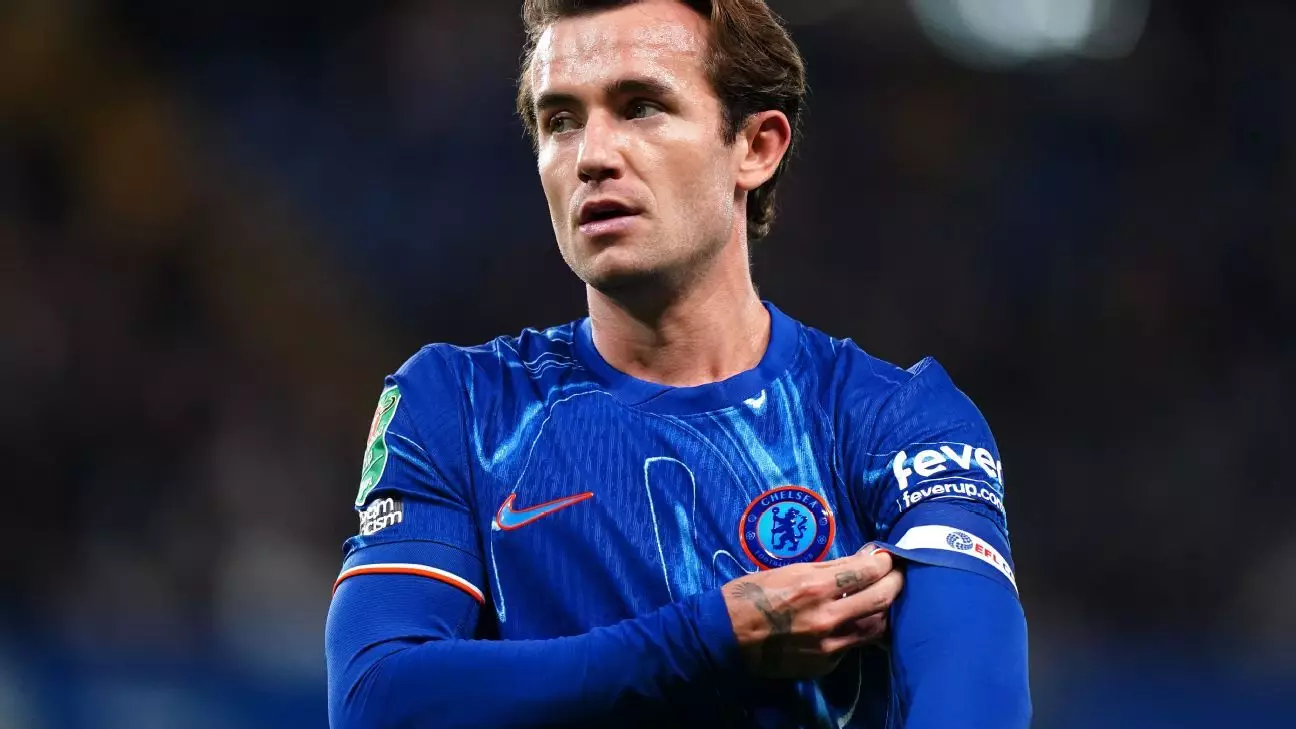Enzo Maresca’s recent comments regarding Ben Chilwell have ignited discussions among Chelsea fans and analysts alike. The head coach expressed a sense of “shame” about the situation surrounding the 28-year-old full-back, who has almost become a forgotten figure in the team under Maresca’s management. Despite a solid record with 70 Premier League appearances over four years, Chilwell’s sole appearance this season in the Carabao Cup paints a stark picture of his diminished role. Yet, the irony lies in the acknowledgment of Chilwell’s dedication and professionalism, a sentiment that clashes with his underutilization on the pitch.
Maresca’s admission of Chilwell’s professionalism raises questions about the rationale guiding player selections. In stating, “Ben has been top,” the coach paradoxically highlights that while Chilwell displays commendable qualities, he remains sidelined due to tactical preferences. This begs the question: how can a player demonstrate high performance and commitment yet remain out of favor in critical matches? It suggests a deeper issue of tactical fit rather than individual capability.
Tactical Considerations vs. Individual Talent
Maresca elaborated on his decision-making process, explaining that he sees players like Malo Gusto, Reece James, or Marc Cucurella fulfilling roles that he deems more beneficial for the team’s strategy. This approach indicates a departure from traditional views on player selection, favoring versatility and adaptability over established prowess. However, it invites skepticism regarding the long-term implications of prioritizing a highly specific tactical framework that could inadvertently sideline proven talents like Chilwell.
Moreover, Maresca’s assertion of not being a “fan of full-backs going up and down” adds another layer of complexity. Full-backs traditionally offer width and depth, crucial for both defensive solidity and offensive opportunities. By dismissing this role, Maresca risks underutilizing a player’s potential and contributing to a stagnant team performance. This philosophical divergence could alienate fans who resonate with a more dynamic style of play.
Impending Challenges in the Squad
The scrutiny doesn’t stop at Chilwell; it also extends to the burgeoning talent Renato Veiga, who joined Chelsea but seems unhappy with his current role, being used more as a left-back rather than his preferred center-back position. Maresca’s comments suggest an unwillingness to accommodate player preferences, which can lead to dissatisfaction and possible exits, further impacting squad depth and morale.
As Chelsea grapples with a five-game winless streak in the Premier League, the urgency for clarity in player selection processes is paramount. The decisions made now will resonate in the club’s pursuit of a turnaround. Balancing tactical philosophy with player management is fraught with challenges, and as the team prepares to host Bournemouth, the repercussions of Maresca’s current approach could define the trajectory of Chelsea’s season and the future of its coaching staff.
While Enzo Maresca’s philosophy may have its merits, the exclusion of established players like Ben Chilwell and the treatment of young talents like Renato Veiga raise crucial questions about the sustainability of his methods. Without a shift towards greater inclusivity and flexibility in player roles, the Chelsea squad may find itself in a precarious position both on and off the pitch.

